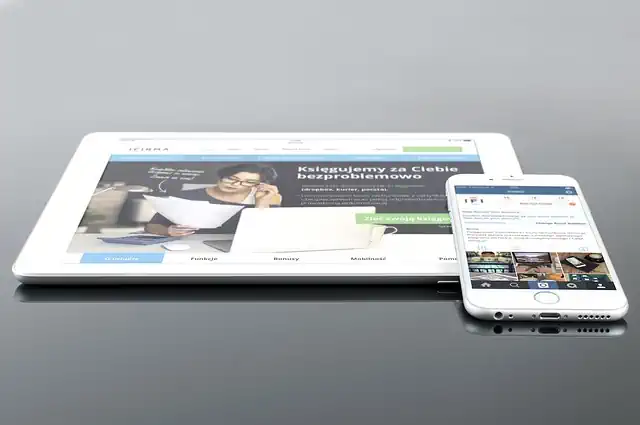How To Save Money As A Phd Student
“Smart tips for PhD students to save money and thrive academically.”
Introduction

As a PhD student, it can be challenging to balance the demands of research and coursework with the need to save money. However, with some careful planning and budgeting, it is possible to save money and make the most of your stipend or funding. In this article, we will explore some tips and strategies for saving money as a PhD student.
Creating a Budget Plan for Your PhD Journey
As a PhD student, you are likely to face a lot of financial challenges. From tuition fees to research expenses, the cost of pursuing a PhD can be overwhelming. However, with proper planning and budgeting, you can save money and make the most of your PhD journey. In this article, we will discuss some tips on how to create a budget plan for your PhD journey.
The first step in creating a budget plan is to assess your income and expenses. Start by listing all your sources of income, including your stipend, grants, scholarships, and any part-time jobs you may have. Next, list all your expenses, including tuition fees, rent, utilities, groceries, transportation, and any other expenses you may have. Once you have a clear picture of your income and expenses, you can start creating a budget plan.
The next step is to prioritize your expenses. Identify the expenses that are essential, such as rent, utilities, and groceries, and allocate a fixed amount for each of them. For example, if your rent is $800 per month, allocate $800 for rent in your budget plan. Similarly, allocate a fixed amount for other essential expenses such as utilities and groceries.
Once you have allocated funds for essential expenses, you can start looking at other expenses such as entertainment, travel, and dining out. These expenses are not essential, but they can add up quickly and eat into your budget. To save money, consider cutting back on these expenses or finding cheaper alternatives. For example, instead of dining out at expensive restaurants, cook your meals at home or pack your lunch. Instead of traveling during peak season, consider traveling during off-peak season when prices are lower.
Another way to save money is to take advantage of student discounts. Many businesses offer discounts to students, including restaurants, movie theaters, and retail stores. Make sure to carry your student ID with you at all times and ask for student discounts whenever possible.
In addition to student discounts, you can also save money by buying used textbooks and equipment. Textbooks and equipment can be expensive, but you can save money by buying used items. Look for used textbooks online or at your university bookstore. You can also find used equipment such as lab coats and safety goggles at your university’s surplus store.
Finally, consider setting up a savings account and putting aside a fixed amount of money each month. Even if it’s just a small amount, saving money can help you build a financial cushion and prepare for unexpected expenses. You can also consider investing your savings in a low-risk investment such as a mutual fund or a certificate of deposit.
In conclusion, creating a budget plan is essential for saving money as a PhD student. By assessing your income and expenses, prioritizing your expenses, taking advantage of student discounts, buying used textbooks and equipment, and setting up a savings account, you can make the most of your PhD journey without breaking the bank. Remember, every dollar you save is a dollar you can invest in your future.
Maximizing Your Student Discounts and Benefits
As a PhD student, you are likely facing a tight budget. Between tuition fees, textbooks, and living expenses, it can be challenging to make ends meet. However, there are ways to save money and make the most of your student status. One of the best ways to do this is by taking advantage of student discounts and benefits.
Many companies offer discounts to students, and it’s essential to know where to look. Here are some tips on how to maximize your student discounts and benefits:
1. Research Student Discounts
The first step is to research student discounts. Many companies offer discounts to students, but they may not be advertised. Check with your university or student union to see if they have a list of discounts available to students. You can also search online for student discount websites that compile a list of discounts available to students.
2. Use Your Student ID
Your student ID is your ticket to many discounts and benefits. Always carry it with you and ask if a company offers a student discount. Many retailers, restaurants, and entertainment venues offer discounts to students, and all you need to do is show your student ID.
3. Take Advantage of Freebies
Many companies offer freebies to students. For example, Microsoft offers free Office 365 to students, and Amazon offers free Prime membership for six months. Take advantage of these freebies to save money on software, shipping, and other services.
4. Join Student Memberships
Many organizations offer student memberships at a reduced rate. For example, museums, gyms, and professional organizations often offer discounted memberships to students. Joining these organizations can save you money and provide you with valuable networking opportunities.
5. Attend Student Events
Many universities and student unions organize events for students. These events often offer discounts and freebies to students. Attend these events to save money and meet other students.
6. Shop at Student-Friendly Stores
Some stores cater specifically to students and offer discounts and benefits. For example, UNiDAYS is a website that offers discounts to students at popular retailers such as ASOS, Apple, and Nike. Look for stores that offer student discounts and shop there to save money.
7. Use Student Travel Discounts
If you need to travel, take advantage of student travel discounts. Many airlines, bus companies, and train companies offer discounts to students. You can also use websites such as StudentUniverse to find discounted travel options.
In conclusion, as a PhD student, you can save money by taking advantage of student discounts and benefits. Research student discounts, use your student ID, take advantage of freebies, join student memberships, attend student events, shop at student-friendly stores, and use student travel discounts. By doing so, you can make the most of your student status and save money while pursuing your academic goals.
Cooking on a Budget: Meal Planning and Grocery Shopping Tips
As a PhD student, you are likely on a tight budget. Between tuition, textbooks, and research expenses, it can be challenging to make ends meet. One area where you can save money is in your food budget. By planning your meals and shopping strategically, you can eat well without breaking the bank.
Meal planning is an essential part of saving money on food. By taking the time to plan your meals for the week, you can avoid impulse purchases and reduce food waste. Start by making a list of the meals you want to eat for the week. Consider your schedule and plan meals that are easy to prepare on busy days. Look for recipes that use similar ingredients to reduce waste and save money.
Once you have your meal plan, it’s time to make a grocery list. Before you head to the store, take inventory of what you already have in your pantry and fridge. This will help you avoid buying duplicates and ensure that you use up what you already have. When making your list, prioritize the items you need for your planned meals. Don’t forget to include snacks and staples like bread, milk, and eggs.
When shopping for groceries, it’s important to be strategic. Start by looking for sales and discounts. Many grocery stores offer weekly specials on meat, produce, and other items. Take advantage of these deals to save money. You can also save money by buying in bulk. Look for items like rice, beans, and pasta that can be stored for a long time and used in multiple meals.
Another way to save money on groceries is to shop at discount stores. Stores like Aldi and Lidl offer high-quality products at lower prices than traditional grocery stores. While the selection may be more limited, you can still find everything you need to make healthy, delicious meals.
When shopping for produce, consider buying in-season fruits and vegetables. These items are often cheaper and taste better than out-of-season produce that has been shipped from far away. You can also save money by buying frozen fruits and vegetables. These items are often cheaper than fresh produce and can be stored for longer periods.
Finally, don’t be afraid to try new recipes and ingredients. Cooking at home is a great way to save money, and there are countless resources available online for finding new recipes. Look for recipes that use affordable ingredients like beans, lentils, and canned tomatoes. You can also experiment with different spices and seasonings to add flavor to your meals without breaking the bank.
In conclusion, saving money on food as a PhD student is possible with a little planning and strategy. By meal planning, making a grocery list, shopping strategically, and trying new recipes and ingredients, you can eat well without overspending. With these tips, you can focus on your studies without worrying about your food budget.
Finding Affordable Housing Options Near Your University
As a PhD student, you are likely to be on a tight budget. With tuition fees, research expenses, and living costs to consider, it can be challenging to make ends meet. However, there are ways to save money and make your finances stretch further. One of the most significant expenses for students is housing. In this article, we will explore some affordable housing options near your university.
One of the most popular options for students is to live in university accommodation. This can be a great choice for those who want to be close to campus and have access to all the facilities and services that the university offers. However, university accommodation can be expensive, and there is often a limited number of rooms available. If you are considering this option, it is essential to apply early to secure a place.
Another option is to rent a room in a shared house or apartment. This can be a more affordable option than living alone, as you can split the rent and bills with your housemates. You can find shared accommodation through online platforms such as Craigslist, Gumtree, or Facebook groups. It is essential to meet your potential housemates before signing a lease to ensure that you are compatible and have similar lifestyles.
If you prefer to live alone, you can consider renting a studio or one-bedroom apartment. This can be more expensive than shared accommodation, but it can also offer more privacy and independence. You can find affordable apartments through online platforms or by contacting local real estate agents. It is essential to negotiate the rent and read the lease carefully before signing.
Another option is to live with a host family. This can be a great way to experience the local culture and improve your language skills if you are studying abroad. Host families can provide you with a room, meals, and a supportive environment. You can find host families through online platforms or by contacting local language schools.
If you are willing to commute to campus, you can consider living in a nearby town or suburb. This can be a more affordable option than living in the city center, and it can also offer a quieter and more relaxed lifestyle. You can find affordable housing options through online platforms or by contacting local real estate agents. It is essential to consider the cost and time of commuting before making a decision.
Finally, you can consider alternative housing options such as house-sitting, couch-surfing, or camping. These options can be more adventurous and budget-friendly, but they may not be suitable for everyone. House-sitting involves taking care of someone’s home while they are away, and it can provide you with free accommodation. Couch-surfing involves staying with locals for free, and it can be a great way to meet new people. Camping involves living in a tent or caravan, and it can be a great way to enjoy nature and save money.
In conclusion, finding affordable housing options near your university can be challenging, but it is possible. You can consider living in university accommodation, renting a room in a shared house or apartment, renting a studio or one-bedroom apartment, living with a host family, commuting to campus from a nearby town or suburb, or exploring alternative housing options. It is essential to consider your budget, lifestyle, and preferences before making a decision. With some research and planning, you can save money and make the most of your PhD experience.
Utilizing Free Resources and Services Offered by Your University
As a PhD student, you are likely to be on a tight budget. Between tuition fees, research expenses, and living costs, it can be challenging to make ends meet. However, there are ways to save money and make the most of the resources available to you. One of the best ways to do this is by utilizing the free resources and services offered by your university.
Firstly, your university library is an excellent resource for research materials. Instead of buying expensive textbooks and journals, you can borrow them from the library for free. Most university libraries also offer access to online databases and academic journals, which can save you a significant amount of money. Additionally, many libraries offer workshops and training sessions on research skills, which can help you become a more efficient and effective researcher.
Another valuable resource offered by universities is the career center. The career center can help you with everything from writing a resume to finding a job after graduation. They can also provide advice on internships and other opportunities to gain experience in your field. By taking advantage of the career center’s services, you can increase your chances of finding a job after graduation and save money on job search expenses.
Many universities also offer free or discounted health services to students. This can include everything from routine check-ups to mental health counseling. By taking advantage of these services, you can save money on healthcare expenses and ensure that you are taking care of your physical and mental well-being.
In addition to health services, universities often offer free or discounted fitness facilities. This can include access to gyms, swimming pools, and sports facilities. By using these facilities, you can save money on gym memberships and other fitness expenses. Additionally, staying active and healthy can help you stay focused and productive in your studies.
Finally, many universities offer free or discounted transportation services. This can include shuttle buses, bike rentals, and public transportation passes. By using these services, you can save money on transportation expenses and reduce your carbon footprint. Additionally, using public transportation can be a great way to explore your city and discover new places.
In conclusion, as a PhD student, it is essential to make the most of the resources available to you. By utilizing the free resources and services offered by your university, you can save money and make your student experience more enjoyable. From the library to the career center, health services to fitness facilities, and transportation services, there are many ways to save money and make the most of your time as a PhD student. So, take advantage of these resources and enjoy your student experience to the fullest!
Earning Extra Income: Part-Time Jobs and Freelancing Opportunities
As a PhD student, you may find yourself struggling to make ends meet. Between tuition fees, living expenses, and research costs, it can be challenging to balance your budget. However, there are ways to earn extra income while pursuing your degree. In this article, we will explore some part-time jobs and freelancing opportunities that can help you save money as a PhD student.
Part-Time Jobs
One of the most common ways to earn extra income as a PhD student is by taking on a part-time job. There are many options available, depending on your skills and interests. Here are some ideas to consider:
1. Tutoring: If you excel in a particular subject, you can offer your services as a tutor. You can advertise your services online or through your university’s tutoring center.
2. Research assistant: Many professors hire research assistants to help with their projects. This can be a great opportunity to gain experience in your field while earning extra income.
3. Retail or hospitality: If you prefer a more traditional part-time job, consider working in retail or hospitality. These industries often offer flexible schedules and can be a good way to earn extra income.
Freelancing Opportunities
If you prefer more flexibility in your work schedule, freelancing may be a good option for you. Here are some freelancing opportunities to consider:
1. Writing: If you have strong writing skills, you can offer your services as a freelance writer. You can find work through online platforms such as Upwork or Freelancer.
2. Graphic design: If you have experience in graphic design, you can offer your services to clients who need logos, websites, or other design work.
3. Social media management: Many businesses need help managing their social media accounts. If you have experience in social media marketing, you can offer your services as a freelancer.
Tips for Success
No matter which part-time job or freelancing opportunity you choose, there are some tips to keep in mind to ensure your success:
1. Manage your time wisely: Make sure you can balance your work commitments with your academic responsibilities. Set realistic goals and deadlines for yourself.
2. Communicate with your employer or clients: Make sure you are clear about your availability and expectations. Keep in touch regularly to avoid misunderstandings.
3. Build your skills: Take advantage of any training or development opportunities offered by your employer or clients. This can help you improve your skills and increase your earning potential.
In conclusion, earning extra income as a PhD student is possible with the right mindset and approach. Whether you choose a part-time job or freelancing opportunity, make sure you manage your time wisely and communicate effectively with your employer or clients. With some hard work and dedication, you can save money and achieve your academic goals at the same time.
Saving on Textbooks and Course Materials: Tips and Tricks
As a PhD student, you are likely to be facing a lot of expenses. From tuition fees to accommodation costs, it can be challenging to manage your finances. However, one area where you can save money is on textbooks and course materials. Here are some tips and tricks to help you save money on these essential items.
1. Buy Used Textbooks
One of the easiest ways to save money on textbooks is to buy used copies. Many students sell their textbooks after they have finished their courses, and you can often find these books at a fraction of the cost of new ones. You can check online marketplaces like Amazon, eBay, or Chegg for used textbooks. You can also check with your university’s bookstore or library to see if they have any used copies available.
2. Rent Textbooks
Another option is to rent textbooks instead of buying them. Many online book rental services offer textbooks for a fraction of the cost of buying them. You can rent textbooks for a semester or a year, depending on your needs. Some popular book rental services include Chegg, BookRenter, and Campus Book Rentals.
3. Use E-Books
E-books are becoming increasingly popular, and they can be a great way to save money on textbooks. Many publishers offer e-book versions of their textbooks, which you can download and read on your computer or tablet. E-books are often cheaper than print versions, and you can save money on shipping costs as well. You can check with your university’s library to see if they offer e-books or check online retailers like Amazon or Barnes & Noble.
4. Share Textbooks
If you have friends or classmates who are taking the same courses as you, you can consider sharing textbooks. You can split the cost of the book and take turns using it. This can be a great way to save money, especially if you only need the book for a short period.
5. Look for Free Resources
There are many free resources available online that can help you with your coursework. You can find free textbooks, lecture notes, and study guides on websites like OpenStax, Project Gutenberg, and Khan Academy. You can also check with your university’s library to see if they offer any free resources.
6. Buy Older Editions
If you don’t need the latest edition of a textbook, you can consider buying an older edition. Older editions are often much cheaper than the latest ones, and the content is usually very similar. You can check with your professor to see if an older edition is acceptable for your course.
In conclusion, there are many ways to save money on textbooks and course materials as a PhD student. You can buy used textbooks, rent textbooks, use e-books, share textbooks, look for free resources, and buy older editions. By following these tips and tricks, you can save money and make your PhD journey a little bit easier on your wallet.
Conclusion
Conclusion: As a PhD student, saving money can be challenging, but it is possible with careful planning and budgeting. Some effective ways to save money include creating a budget, reducing unnecessary expenses, taking advantage of student discounts, and finding ways to earn extra income. By implementing these strategies, PhD students can save money and achieve their financial goals.







